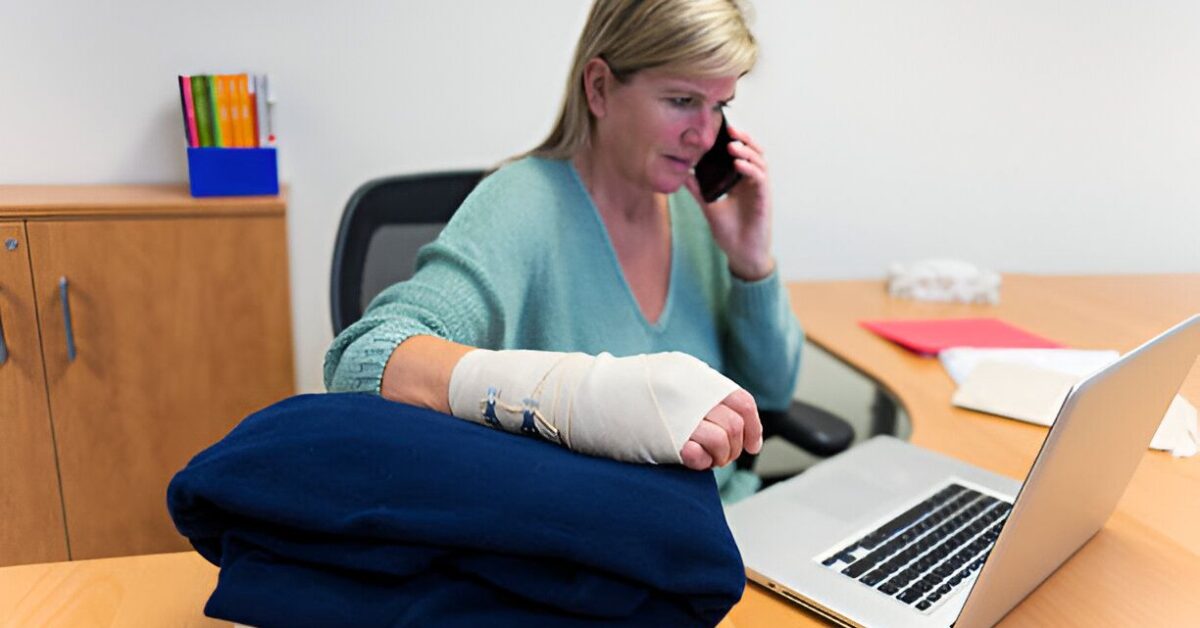When you’ve been injured due to someone else’s negligence, understanding how to secure fair compensation is crucial. This guide will walk you through the essential steps and considerations in pursuing a personal injury claim, empowering you to protect your rights and interests effectively.
Contents
Foundation of Personal Injury Law
Personal injury law is designed to protect individuals who have suffered harm due to the actions or negligence of others. If you’ve suffered a car accident, slip, or medical malpractice, you have the right to seek compensation for injuries.
This area of law can be complex, with insurance companies and large corporations often employing skilled attorneys to minimize payouts. That’s why it’s essential for injured parties to arm themselves with knowledge and, when necessary, seek professional legal representation to level the playing field.
Immediate Actions After an Injury
Your first priority after sustaining an injury should always be your health. Seek medical attention immediately, even if your injuries seem minor. Some injuries may not be immediately apparent, and prompt medical care creates a crucial link between the incident and your injuries, which is vital for your claim.
Additionally, start documenting everything related to your injury and its impact on your life. Keep a detailed record of daily pain levels, symptoms, how the injury affects your routine activities, its impact on your work and personal relationships, and any emotional or psychological effects.
This comprehensive record will provide valuable evidence of how the injury has affected your life, strengthening your case for fair compensation.
Building a Strong Case Through Evidence
Collecting and preserving evidence is crucial to the success of your personal injury claim. Be sure to photograph your injuries and the accident scene, obtain copies of any official incident reports, and collect contact information from witnesses.
Keep all medical records and bills, document any property damage, and save receipts for all injury-related expenses. This evidence will be instrumental in establishing the extent of your damages and linking them directly to the incident. The more thorough your documentation, the stronger your case will be.
Why Legal Representation Matters?
After addressing immediate medical concerns and gathering initial evidence, consulting with an experienced personal injury attorney can be invaluable. A skilled lawyer can assess your case, communicate with insurance companies, gather evidence and expert testimonies, and calculate your damages.
They also negotiate for fair compensation and represent you in court if necessary. Most personal injury attorneys offer free initial consultations and work on a contingency fee basis, meaning they only get paid if you win your case. This arrangement allows you to access legal expertise without upfront costs.
Understanding Compensation Calculations
Determining appropriate compensation in personal injury cases involves several factors. Economic damages include current and future medical expenses, lost wages and diminished earning capacity, property damage, and out-of-pocket expenses related to the injury.
Non-economic damages cover pain and suffering, emotional distress, loss of enjoyment of life, and loss of consortium. Attorneys and insurance companies use specific formulas to calculate these damages, taking into account the severity and long-term impact of the injury.
Understanding these categories can help you and your attorney determine a fair value for your claim.
Settlement Process and Negotiations
Securing fair compensation often requires patience and persistence. While it may be tempting to accept an early settlement offer, especially when facing mounting bills, it’s crucial to ensure that the compensation adequately covers all your damages, including potential future expenses.
Insurance companies may initially offer low settlements in hopes of quickly closing the case. It’s important to resist the temptation to accept early offers before fully understanding the long-term impact of your injuries.
Your attorney can help you understand the true value of your claim and advise on when it’s appropriate to settle or proceed to trial.
Avoiding Common Pitfalls in Personal Injury Claims
To protect the strength of your claim, be cautious about what you say to insurance adjusters and avoid discussing your case on social media. Follow all medical advice and attend scheduled appointments. Don’t give recorded statements without legal counsel present.
These precautions can help maintain the integrity of your claim and improve your chances of receiving fair compensation. Remember, insurance companies may use any information you provide to minimize your claim, so it’s essential to be vigilant throughout the process.
Conclusion
Navigating a personal injury claim is complex, especially amidst physical and emotional recovery. By understanding your rights, taking prompt action, and seeking professional legal guidance, you can significantly improve your chances of fair compensation. Stay informed, be patient, and don’t hesitate to seek expert help when needed. Your path to just compensation starts with being well-informed and taking decisive action.

